The World Nomads Podcast: Peru
Did you know that Peru is the original home of surfing? In episode 9 we chat about alternative treks to Machu Picchu, and look at what vaccinations do you need when traveling to South America.
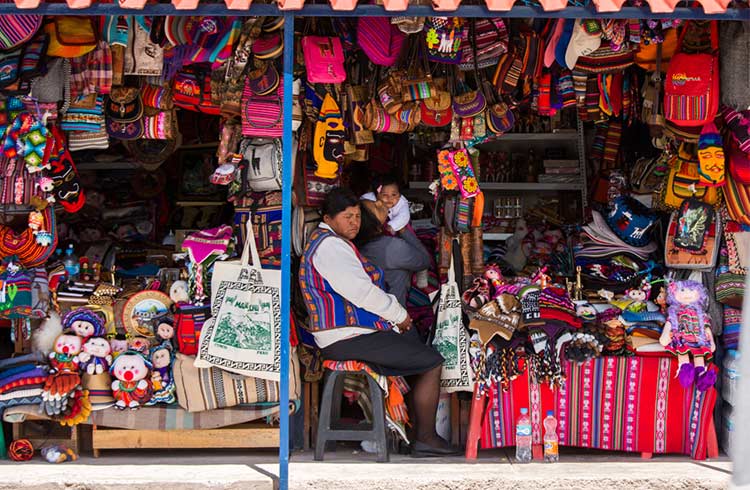 Photo © World Nomads
Photo © World Nomads
Listen Now
Episode 9: Peru.
An extremely biodiverse country, with landscapes ranging from the arid plains of the Pacific coastal region in the west, to the peaks of the Andes Mountains.
Want to know more about Peru? Head to our Stories section to delve a little deeper.
What's in the Episode
00:13 - Welcome
01:13 - Travel Quiz: Which is the second largest city in Peru?
01:24 – British actor Matt Lacey famous for playing Orlando in the Gap Yah comedy sketch which went viral on YouTube.
08:00 – Surf’s up in Peru.
“They build these big old boards out of what we call Totora Reed. They've been using them at least 3500 years. So that's part of this original or this very old ancient history that several civilizations have used that kind of make it very significant around the world as the origin of surfing” – Amy Schwartz Unleash Surf
13:00 - We check in to find out what our World Nomads are up to.
16:35 – Travel News: The pig that pooped on the plane!
20:15 – Trekking Peru
“… it's the only place where I have seen a condor like three meters right in front of me going to the highest point of Choquequirao, right at the platform” - Efrain Valles Morales
26:54 – Dr Hamish Black talks vaccinations for South America and answers the big question, is there a parasite in the Amazon that swims up your stream of urine?
32:39 – Quiz Question Answer.
33:06 - What's next in Episode 10?
Who's on the Show?
Amy Schwartz from Unleash Surf - pack your lap-top and work while you surf.
Efrain Valles Morales is a guide who knows all the top spots to trek in Peru and those you may not have heard about.
Actor Matt Lacey also known as Orlando from the YouTube comedy sketch Gap Yah.
Dr Hamish Blake World Nomads Emergency Assistance.
Resources & Links
Get the World Nomads Insider's Guide to Peru by clicking this, or by filling in the form on the right hand side of this page.
Orlando’s Gap Yah on YouTube
Facebook live footage of Japan’s Hadaka Matsuri Festival also known as the Naked Man Festival.
Want to more about festivals in Japan, read our World Nomads articles or watch our video series.
Follow World Nomads on Instagram for the latest stories, and #WorldNomads for your chance to be featured.
Share Episodes with Your Audience
Want to share an episode you loved, or you were a guest? Do it with this Player Embed code.
<iframe width="100%" height="200" src="https://player.whooshkaa.com/player/episode/id/174058?visual=true&sharing=true" frameborder="0" style="width: 100%; height: 200px"></iframe>
Want to Talk to us?
We want to hear from you! If you have any travel insurance questions to Ask Phil, want to give us feedback on the episode, or have suggestions for topics you'd like us to cover, email us at podcast@worldnomads.com
Sign up for Podcast News
Explore your boundaries and discover your next adventure with The World Nomads Podcast. Hosted by Podcast Producer Kim Napier and World Nomads Phil Sylvester, each episode will take you around the world with insights into destinations from travellers and experts. They’ll share the latest in travel news, answer your travel questions and fill you in on what World Nomads is up to, including the latest scholarships and guides. The World Nomads Podcast is not your usual travel Podcast. It’s everything for the adventurous, independent traveller. Don’t miss out. Subscribe today.
The World Nomad's Podcast, it's not your usual travel podcast, it's everything for the adventurous, independent traveler.
Kim: Hi my name is Kim and welcome to our podcast delivered by World Nomads, the travel, lifestyle and insurance brand covering more than half a million travelers. Now my fellow co-host is Phil.
Phil: Hi there.
Kim: And where are we off to this episode, episode nine?
Phil: Kim we're going to Peru, and extremely bio diverse country with habitats ranging from the arid planes of the pacific coastal region in the west to the peaks of the Andes mountains.
Kim: Yes and we will touch on both in this episode, when we chat with Effie, and Inca trail guide who offers some alternative trips to the very popular Machu Picchu, which is arguably the biggest draw county in Peru. But Phil it's being overrun with travelers.
Phil: Yeah. And Amy Schwartz from Unleash Surf, a company that allows you to work while you surf. Plus Dr. Haymitch Black about vaccinations for South America. And we ask "Is it true, there's a parasite in the Amazon that swims up your stream of urine?"
Kim: Yeah there's no we in this, you asked. Okay all that to come and more but in each World Nomads Podcast we kick off with Phil's quiz question.
Phil: Pretty simple geography question today. The capital of Peru is Lima. But which is the second largest city? The answer will be at the end of the podcast.
Kim: Our first guest is Matt Lacey. Now Matt is a British actor and comedian and he's best known for his role as Ben in the BBC TV series Cuckoo. And Orlando in Gap Yard, it's a comedy sketch and it went absolutely viral around the world. In fact his pronunciation of Peru became a global catchphrase. Let's just have a little listen in case you haven't heard it before.
Matt Lacey: That really reminds me of this time on my gap year. I was in South America in Peru, Peru. No Peru darling Peru. Peru, okay oh yeah Peru Peru yeah, wonderful country. You know beautiful people. Yeah. Yeah no we were trekking in the Andes and the sun was just rising and glinting off the snow creating this sort of ethereal haze. And I really got a sense of the awesome power of nature and the insignificance of man. You know then I just chundered everywhere. I was like all over the snow. I was like have that nature, one nil.
Kim: I so love that, Peru darling Peru. Matt thanks for being part of the show. That youtube clip by the way has had six million views.
Matt Lacey: Wow is it six million?
Phil: No pressure.
Matt Lacey: It's funny hearing it back. I haven't heard it for a while. No I didn't, and to be honest I think if I had known I would have put it on my own YouTube channel and not the guys who filmed it.
Kim: What was the motivation behind it?
Matt Lacey: Oh it's all written from life. I met a lot of people at university that sort of spent the year vomiting all over the developing world. Was very keen to tell everyone about it. And I mean there's several that sort of sort of self parody. I don't live in Fulham but I did actually go on a gap year. And I went to Peru, you can ask about that.
Kim: So look at Peru, Peru darling. What did you think of Peru?
Matt Lacey: Yeah it's a beautiful place. I checked some fairly normal boxes, going down to Cusco. Did the Inca trail and stuff but they're popular for a reason.
Kim: Did you chunder anywhere?
Matt Lacey: I don't think so. I managed to keep the deep fried guinea pig down as far as I could remember.
Phil: I couldn't go there, I tried that there. I couldn't go there. You didn't did you?
Matt Lacey: Yeah I did. It's a cliché but it tasted like chicken. Sort of the brown meat of chicken.
Kim: Where else have you been around the world?
Matt Lacey: Lot's of different places. So after the gap year I'd been broke. The Telegraph serialized my book. By the way that's still on sale. Look for that, the hardcore fans. And yeah after they serialized they sent me to South Africa to live on a lion preserve. I wrote a fantastic puff piece about it. So that was fun. Most recently I've been going to Europe a lot, just because it's quite easy. So most recently I've sort of ... My most interesting trips have been based around weird festivals. And in Europe there are an absolute plethora.
So I recently went to one in the Bath Country where they string a goose cadaver on a wire and then loaded boats go past it. And the locals try to jump onto the goose cadaver as it gets flipped up and down into the air. If they fall off they lose, but if they manage to hold on and thus decapitate the goose, they win. Generally is you scratch the surface in Spain and the Basque Country, every small town will have some sort of weird festival that you can go to. You know some of them they replace their goose with a rubber goose. I think for animal rights reasons.
Phil: In the more ethically sound towns of Basque country.
Matt Lacey: Yeah.
Phil: I reckon you should go to the one in Japan. We've got a film where we covered it on World Nomads. It's the naked man festival in Japan.
Kim: Yeah it's on there.
Phil: No men only.
Matt Lacey: They go off to that island and all get naked.
Phil: Yeah well there's-
Matt Lacey: I think I read about that.
Phil: Yeah there's this really strange ... And there's thousands of men just wearing loin cloths basically inside this temple. And the priest lobs a stick into the crowd and then they all fight for it. And then the person who picks it up and puts it into a receptacle gets, I don't know good luck for a year. So it's like this thronging mass of you know a thousand fifteen hundred semi naked blokes. It's amazing.
Matt Lacey: When I went to Japan, I particularly remember the Onsen, the hot baths which are amazing. That some of them really don't have the capacity for the naked men that want to kill each other. I was nearly sort of, to put it bluntly had bits slung against by an elderly Japanese man. Tried to get into the plunge pool. So I guess that's probably good training for the naked man festival.
Kim: Thanks so much for having a chat. It's a real pleasure particularly as a fan of Orlando. Matt thank you very much.
Phil: Thanks Matt.
Matt Lacey: No worries.
Kim: We'll have that clip in our show notes for you to see in full plus links to where you can buy Matt's book, The Gap Year Planner.
Phil when you mentioned we were doing a podcast on Peru, and then you said "Hey I wanna follow up with a chat on surfing." I was thinking "Is he mad? Peru and surfing." But they go hand in hand.
Phil: A massive coastline there as well. And nothing between Peru and Asia basically.
Kim: I know but I just didn't think. And hence we got in touch with Amy and she's going to educate me and perhaps everyone else that's listening that wasn't aware of this fantastic surf culture in Peru. Hi how are you going?
Amy: Good how are you?
Kim: Well I'm well but I'm feeling a little, not underwhelmed but undereducated. Phil's right you know there's a massive coastline. Tell us about this surfing culture.
Amy: Sure. So it's one of these places that is not necessarily on every bodies kind of surfing travel journey map. But in terms of like South America or the kind of Western Hemisphere, it's probably like the Indonesia of Latin America or North and South America. Because it does have this long coastline and it's broken up by a fair number of point breaks. Which means that the swell comes in and kind of breaks gradually along a point. Which for a surfer is generally kind of the ideal setup for a wave.
Not all surfers will say that but most of us I think would. So Peru is really sort of well designed. Most of Peru gets waves literally every day of the year. It is a very very rare day when it's flat. So it's pretty special in that sense.
Phil: And what sort of quality surf are we talking about? Are we talking about big waves that you get there or is it always smaller or varies?
Amy: Yeah great question. Again it depends. It's usually ... I don't want to make it seem like the land of the perfect wave but it's often kind of the perfect size. So I'm not sure what you use in Australia but in Canada we usually use feet. So it's usually between like three and six feet on most days. And where we are right now, which is Huanchaco which is just eight hours North of Lima. So it's sort of in North Peru but not super North. It's got, it generally has like a good size swell that's good for almost any level of surfer from kind of beginner to intermediate.
But then if it does get really big, there's other spots that you can go to that kind of hold a bigger swell. Huanchaco became a world surf reserve partially because of it's history, which again has this kind of culture. Which is actually a fishing culture. So they build these big old boards out of what's called Totora reed. So it's just a reed that they cut in the swamp. And they use them kind of like a stand up paddle board.
But they've been using them at least 3500 years. So that's part of this kind of original or this very old ancient history. But several civilizations have used, kind of make it very significant around the world as the origin of surfing. So that was part of the reason why it was considered significant enough to become a world surf reserve. And it's got a really sort of alive surf culture in the sense that you had this traditional surfing or fishing craft that is considered the first surfboard or the original surfboard that you see going in and out of kind of the surf break every day.
And then you have surfers surfing around these kind of very traditional ancient surfing craft. So it's a pretty special atmosphere. There's nowhere else I've even been that has this kind of living history along with kind of modern surfing.
Phil: Alright amazing but I've got about a dozen questions to ask you then. I'm just gonna back track a long way, 3500 year old surfboard. The history from that and what does a Peruvian surfboard, that's the reed thing that you're talking about. Is that right?
Amy: Yup it's called Caballito de Totora. Which means basically like seahorse of the reed. So the reed is Totora.
Phil: Peruvians claiming surfing, is that what you're saying?
Amy: Yeah and it's interesting because there's a long ... I would say the modern history of surfing has really held onto this idea that you know modern surfing came from Hawaii. Which and don't quote me on this, but in the eighties when the first ISA World Champion Felipe Pomar, who now lives in Hawaii actually but he's Peruvian kind of brought evidence of this to Surfer Magazine and did a big article on it in Surfer Magazine. And stirred up the pot about where did surfing really originate? And if you have evidence of this civilization using this kind of a board 3500 years ago. Well it definitely shows it's older than the Hawaiian tradition.
Kim: Let's just pause Amy there while we check in Phil with our World Nomads.
What do you like about traveling?
Male 1:Um my favorite part about traveling is meeting new people.
Kim: And what about you?
Male 2: I guess running into stuff like this.
Kim: So do you find that when you are a traveler that people are more likely to approach you?
Male 2: Yup.
Kim: What about you, what do you like about traveling?
Male 3: Um mostly just you know the girls, the partying you know. Getting into the new culture, a little bit of this a little bit of that. And just you know getting fucked up basically.
Kim:Well I have picked that are drinking a few brews and have their musical instruments out so I reckon we'll finish on that note with a bit of what you were playing when I interrupted you.
Male 3: (Playing music)
Kim: We're with Amy Schwartz from Unleashed Surf who has just given us a rundown on surfing in Peru, including its amazing history. But if you're a surfer then Amy has an incredible opportunity for you.
Amy: We've been coming to and from Peru, we're from Canada, for about I don't know seven/eight years now. And surfing lots of different waves up and down the coast. And we really fell in love with this place I mentioned already, Huanchaco. Partially because of this long old surfing tradition which is still very much alive. But because the wave is really accessible to all levels of surfers. So two years ago we were here and my partner was working remotely. He has a web design business.
And we were just kind of thinking about what's next in life and we were thinking about "We would love to take other people who can work remotely to a place like Huanchaco where you can have really great Wifi. You can surf literally every single day of the year. And if it gets too big here then you can take people to Chicama, which is the longest left in the world." It's about an hour from here so when it gets really big here it works really well there in Chicama. So you've got lots of options for waves in the region and we thought "Well-" ... And also the other thing about Huanchaco is you can walk to everything.
So we were like "This is the perfect place to kind of just hang out for a month, get your work done, but also everyday before you work go out and surf." And then at lunchtime you can go out and surf and in the evening you can go and surf. You can surf your face off all day but still get your work done. So we decided that we would start a business where we basically take people who can work remotely but wanna have kind of a more wholesome surf lifestyle and bring them here. We set them up with everything that they need.
So we get them a private apartment rather than kind of a hotel room. We want them to fell like they're really living here. So we get them a private apartment, surf lessons or surf coaching, Spanish lessons, yoga, and then we do either surf tours or other kinds of trips and tours on the weekends. And so we provide that for people either for two weeks or for a month. Or for two months or three months so that they can really basically live their dream surfing lifestyle.
Kim: We'll have links to Unleash Surf plus picks of that three and a half thousand year surfboard in our show notes. But Phil I reckon it's time for travel news.
Phil: Alright here it is. A severe drought in South Africa has created a doomsday scenario with Capetown expected to run out of water in April. Taps will be turned off and people will have to collect their allocation of fifty gallon, oh sorry fifty liters. That's thirteen gallons per person per day from Government controlled distribution points. City officials are warning that the place could descend into Anarchy. They're seriously planning for the military to take over the streets. It could be ugly. So lets cross our fingers and hope for rain. By the way the average American uses eighty to one hundred gallons a day. So they're gonna be down to half of your usual allocation.
Kim: Wow what else is happening?
Phil: A group of Western travelers have been arrested and face a year in jail in Cambodia for dancing pornographically at a night club in San Reap. This happened at a popular pool party event called "Let's get wet." This is the best bit, police arrived around four p.m. It's not even midnight.
Kim:That's not even midnight.
Phil:Good work. Police arrived about four p.m. and started rounding people up. Then there are reports their authorities have been targeting ex-pats wearing bikinis in public and attending pub crawls. I'm pretty sure I'd get arrested if I was wearing a bikini in public.
Kim:I reckon you would definitely. But you call an event "Let's get wet" and what do you know the extent of the dancing?
Phil: I have seen some photographs. They were-
Kim:[crosstalk 00:17:48]
Phil: Yeah no they're all fully clothed. They're all still clothed but they are doing simulated sex.
Okay now no one would argue that a guide dog is allowed on a flight. I hope not anyway. But the definition of a service animal is being stretched in the U.S. so that several airlines have tightened up the rules. Now what's prompted this you might ask Kim.
Kim: What's prompted it?
Phil: How about the "Large Mixed Breed Dog" that attacked a passenger leaving facial scars. Or the brown Pig, the companion animal on a plane that defecated in the aisle. Or the emotional support animal that was refused boarding recently, which was a peacock. Not the little brown innocuous Pea Hen, the Peacock, the one with massive spreading tail.
Kim: You can't make this stuff up.
Phil: As a companion animal on a plane. No they're cracking down on that-
Kim: You've made this up, seriously.
Phil: I wish.
Kim: You take a pig on a plane and it does a poop. And a peacock.
Phil:Surprise, surprise. The massive CES, consumer electronic show is held last month. And there were some pretty cool travel gadgets on show for the first time, including a mobile VPN and Wifi device. VPN, Virtual Private Network. It stops somebody snooping on your online activity. So that can be used while you're on some of the Wifi hotspots around the world, which are not necessarily always secure, so you can look after it, look after your own security. Look for the Wi-Dot stream Wi Stream Device.
The Smithsonian magazine has listed ten anniversaries worth traveling for in 2018. Despite the awful grammar of that headline, we all love a flimsy excuse to travel don't we? So do any of these whet your appetite? The founding of New Orleans 300 years ago. Or you can go to Venice to celebrate the birth of the Renaissance painter, Ditorito 500 years ago. How about North Carolina, where in 1718 the British navy attacked and sank the Sloop Adventure, killing the pirate Blackbeard. And how about going to Howarth near Bradford in the north of England where they're celebrating the birth of Emily Bronte two hundred years ago. Wuthering Heights, her most famous novel of course. And the Christmas Carol Silent Night was performed for the first time 200 years ago near Salzburg in Austria.
Kim:So there are ten anniversaries worth traveling for.
Phil:Some of the ten, the other ones were just too boring.
Kim: Alright thanks for that.
Phil the Inca trail is being over run and there have to be some worthwhile tricks in the area that are an alternative. This guy apparently knows them. Now I'm hoping that I pronounce your first name correctly, it's Ephrian?
Ephie: Ephrian Morales
Phil:I knew we'd get it right.
Kim:Us Australians are so bad at putting the, just that little twist to make everything sound sexy.
Ephie:Ephie, you can call me Ephie, will be easy. But my name is Ephrian Bardies.
Kim:Okay so it's true the Inca Trail is getting overrun Ephie?
Ephie:Actually yes, there is 500 people a day starting almost altogether. There are some ways to [inaudible 00:20:56] in, but most of the people they like to do the Inca trail in four days. So all of them start together, they camp in one place altogether. They walk almost altogether. Of course the landscape is amazing, the biology, nature in that area is amazing but after four days hiking with many people it's like you were not really in the place that you were thinking you would be.
We as a guide and myself as a guide, we are upset about it and we are trying to find some type of solution for this, or perhaps look at for options or alternatives.
Phil: Well this is what we wanted to talk to you about because I had heard about Choquequirao, which is very similar to Machu Picchu and not that far away, is that right?
Ephie: Choquequirao is very well known as the sacred sister of Machu Picchu. It was abandoned for quite a long time, the Government doesn't put attention much in that place. But recently the mayor from the different communities around, they are trying to talk and restore the area with the help of the Government. [inaudible 00:22:08] was also helping there. They are trying to build a cable car but it still is in project. But the hike is amazing, the sight is unbelievable place with a lot of [inaudible 00:22:19]. With amazing platforms, houses, temples, waterfalls. I really like more that place than Machu Picchu. Much is amazing, the land, the surrounding the mountains of course it's one of the new seven wonders.
But it's the only place where I have seen a Condor, like three meters right in front of me. Right at the point of Choquequirao, right at the platform. Where else in the world you're gonna see the Condor three meters right in front of you?
Phil: No absolutely.
Kim: Not sure if I want to see the Condor three meters in front of me. So Ephie tell us then about some of those other worthwhile treks in the area that ideally have some of those amazing ruins at the end like Machu Picchu?
Ephie: You can go to Choquequirao then you can connect to Vil Cabamba through Vitcos. Vil Cabamba was the last shelter, the last capital of the Inca empire. Fans were here in 1533.
Phil: Can I just ask you about Choquequirao again.
Kim: You just wanted to say it.
Phil: I just wanted to say the word because I think I've got it right. So because ... I mean you're going up and down a fair height a few times there. So how many people, you say you've got 7,000 today at Machu Picchu. How many people are you getting at Choquequirao?
Ephie: Okay I was there so many times and sometimes I was there along with my group.
Kim: Wow.
Ephie: Okay I found sometimes a couple of groups. Sometimes you can see fifty people. Sometimes sixty, but I don't think so more than that. I haven't seen never ever in that area more than sixty people in a day.
Phil: Can I ask you two more questions alright? Just two more. One of them is the Inca trail to Machu Picchu. Some people do a two/three day trek. How fast can you do it? What's the fastest you've ever done it?
Ephie: Okay. You really wanna hear that?
Phil: Yes.
Ephie:Okay the first time, the four days Inca trail, you could now do in three days.
Phil: Four days.
Ephie:The rules are, you buy your tickets for four days or for five days. But the fastest I did, the first time was six hours with a runner from Scotland. The second time I did it was in three hours and forty fives minutes.
Kim:Oh come on.
Ephie: Sorry, sorry. Four hours and twenty minutes. But the record is three hours and forty fives minutes by professional runners.
Phil: My final question for you Ephie-
Ephie: No problem. Ask as much as you want.
Phil:Machu Picchu, Choquequirao have you got another one? Is there another one you're not telling us about?
Ephie: Vilcabamba. It's getting quite popular. On the way you can see a mountain called Veronica 5,700 meters in front of you, snow capped. You arrive to 4,300 meters, the highest point all the way down to the cloud forest to enjoy coffee, tea, chocolates, banana, mango, orange, mandarins. All the foods, pineapple, papayas, all the way down to the jungle where we produce Coca leaf as well. We produce all the fruits we have in Cusco come from that area. You see the landscapes also amazing. The rivers, you can do rocking, biking, lots of activities. Then you go to Vilcabamba, the last capital of the Inca Empire, the last shelter of the Inca Empire where the last Incan was killed. In a day you can see no one or somebody but not many groups, less than Choquequirao.
Then we have another called Lares. Lares is an amazing hike, people who still speak Quechua out native language, Inca language. Who still live over 4,000 meters producing potatoes, Limas and Alpacas up in the mountains. Worked in extreme temperatures wearing typical clothes living without any money in the area. But they still do the sharing, "Give me corn, I'll give you potatoes. You give me this I'll give you that." The landscape, the mountains. And they wear typical clothes made by them, textiles. Beautiful, beautiful, the trek is called Lares.
Kim: Thanks Ephie and if you would like him to be your guide trekking through Peru, we will show you where you can get ahold of him in our show notes.
Now we love having people visit the World Nomad and this time we have Haymitch Black about vaccinations for South America. But Phil you've got a question you want to kick off with?
Phil: I do Dr. Hamish Black. I've got a very interesting question for you but before we do that, can we explain ... He knows what it is. He's already laughing. Can you explain what it is you do at World Nomads. You're a part of the emergency assistance team correct?
Hamish Black: Yes Phil, yeah lovely to be here. My role here is to manage the risk on the, I'd guess you'd say not so much the proactive side, the reactive side. So when people do get in trouble and they call us at World Nomads, my role is to make sure the clinical risk in particular is being looked after. So we have callers who do need to be moved by our ambulance or that need to come home for some reason. Or they're not sure whether they're getting appropriate care and we have to try and make sure that clinical risk is being managed appropriately.
And sometimes it is quite dramatic, people do have to be moved by our ambulances and put on planes and brought home. But often it's just making sure they get the appropriate provider in their location.
Phil: I was in Peru a couple of years ago and I did go down into the Amazon Basin and along that Madre De Dios river, and we were all told that you can't take a leak into the river. You can't urinate into the river, because there's a parasite that will swim up your urine stream. True or False Doctor Black?
Hamish Black: Yeah Phil, you-
Kim:An idiot.
Hamish Black: It is probably an urban myth I think.
Phil: Okay.
Hamish Black:I mean you could imagine possibly if you're, while in the water that something could get in there. But again-
Phil: You're not helping me. Now it sounds like-
Haymitch Black: It's a myth.
Phil: Alright. Peru in particular but South America in general do you need vaccinations before you go there?
Hamish Black: Look the answer for anywhere is yes. The sensible advice is to get your health looked at before you travel. There are people who do need to get vaccinated depending on what you're doing, where you're traveling of course. I mean if you're gonna travel at all, you need to be vaccinated with your prime immunization course as recommended by the Government. That's the first thing. And there are people who haven't had that done.
Kim: Is there anything specific then to South America or Peru?
Hamish Black: Well I guess Yellow Fever is the one that people think about with Africa and South America. And there are part of Peru that it's recommended that you are immunized for. I guess most people are just gonna go to Cusco and Machu Picchu and possibly Lima. And that part of the world you don't need Yellow Fever. And if you are gonna get out of those areas in general, you probably do need Yellow Fever.
Phil: And Yellow Fever, that's kind of a tropical disease so we're talking about in the Amazon Basin, places like Manaus and Puerto Maldonado, I did that one just for Kim. That was my Spanish accent, terrible.
Hamish Black: Well I'm impressed, I'm impressed Phil. Because you've been there. Most of Peru in the non altitude regions have Yellow Fever.
Phil:Can we talk about Mosquitoes? Malaria and Dengue Fever. Malaria first of all.
Hamish Black: I would be having a conversation with a travel doctor if you're gonna be away for a period of time and you're risk of getting bitten my mosquitoes. Again if you're in urban areas than your risk is pretty low.
Phil: Dengue fever though. I know we get a lot of people who contract Dengue fever, not just from South America but from all over the world as well. You have a lot of Dengue fever cases coming up through EA?
Hamish Black: Yeah we do actually but you know it tends to be a little bit seasonal. You get little outbreaks. That's another one, there's no vaccination for it. There's nothing you can do to prevent it except not get bitten.
Phil:Hamish just getting back to your role as medical director alright? Now often you're dealing with people who've called you and they're in a bad way and they're on the other side of the world. How difficult is that for you to be able to assess what's going on from the other side of the world?
Hamish Black: Well we rely on two things. First of all our conversation with the person who calls us and that's best done by our medical team. So that's myself and there's two other doctors and four nurses here. And correlate that with the medical information we get from the hospital. If we're gonna do something about that situation, if we really think someone needs an upgrade in their care if they're concerned about their level of care they're receiving then we'll generally talk to the treating doctor about moving them.
Phil: If you have a health concern while you're traveling, you're a World Nomad's customer can they ring you up and just get a bit of advice?
Hamish Black:Yes and no. I mean I guess it's difficult for us to provide the sort of advice most people really want, which is therapeutic advice. But we do wanna know what's going on, because we don't want you to get sick while you're traveling. Or if you are, we want you to get well and then travel on I guess.
Phil:So if something does swim upstream into my Willie I should call you anyway and that's what you're saying?
Hamish Black: I'll leave that with you to sort out.
Phil: Actually I did hear, I mean this is part of an urban myth I'm sure. That men in the Amazon when they do go swimming wear a tourniquet over their penis, is that right? To stop this from happening?
Kim:I wish someone had told Phil to do that.
Hamish Black: It has to be really tight as well apparently Phil.
Kim: Well thanks for joining us in the studio.
Hamish Black: Yeah pleasure, it was lovely to be here.
Kim:Well we've just about finished episode nine of the World Nomad's podcast. But everyone has been waiting for the answer to your quiz question Phil.
Phil:Yeah the capital is Lima but the second largest city is Arequipa with a population of 850,000 people which is not that many really. Peru, big country. Like Lima is only a million and a bit. So there's no sort of like mega metropolises like you have like Mexico City. So it's a really traveler friendly kind of country to go to.
Kim: Yeah and after this podcast I'm putting Peru on the list of places-
Phil: It's just around the world ticket really.
Kim: It is, that wraps up episode nine. Subscribe, rate, share on iTunes, Google play, Stitcher and now we're also on iHeartRadio. How cool is that?
Phil: Yes fantastic.
Kim: Contact us by emailing podcast@worldnomads.com Next episode, Phil where are we going to?
Phil: We're going to the U.S. of A
Opener: The World Nomads Podcast. Explore your boundaries.
Related articles
Simple and flexible travel insurance
You can buy at home or while traveling, and claim online from anywhere in the world. With 150+ adventure activities covered and 24/7 emergency assistance.
Get a quote



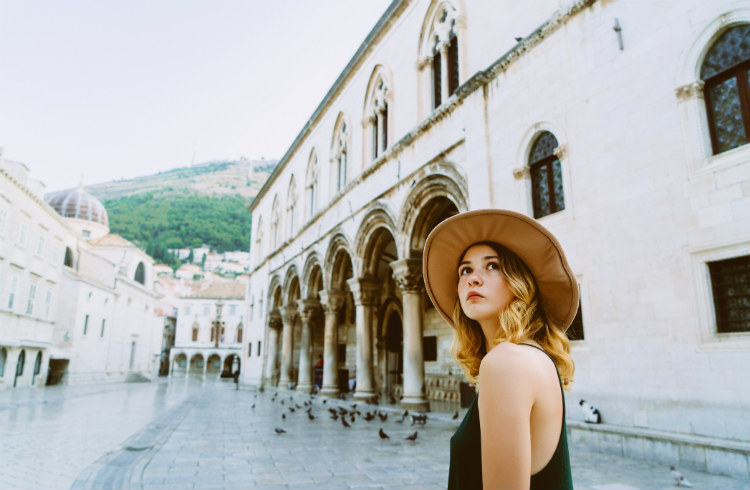
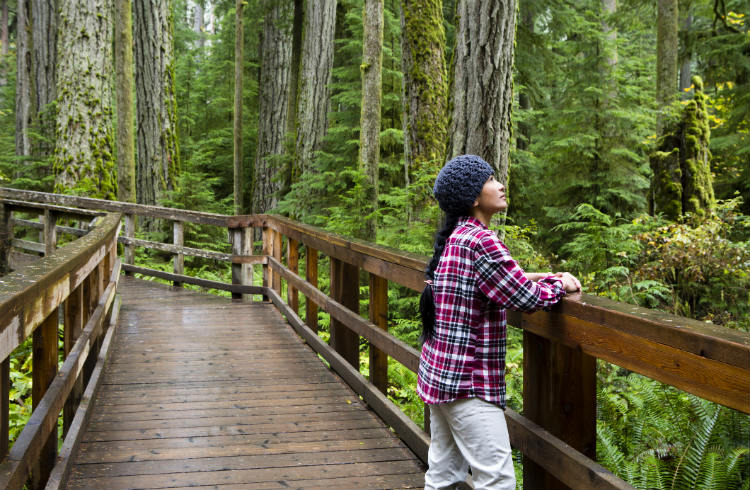
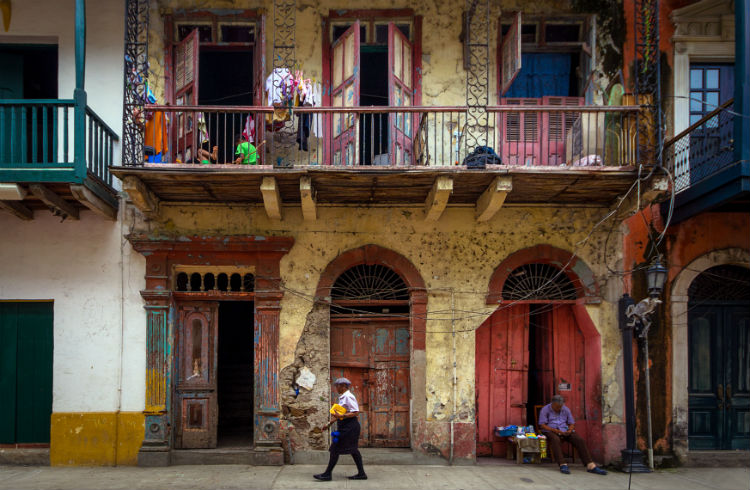
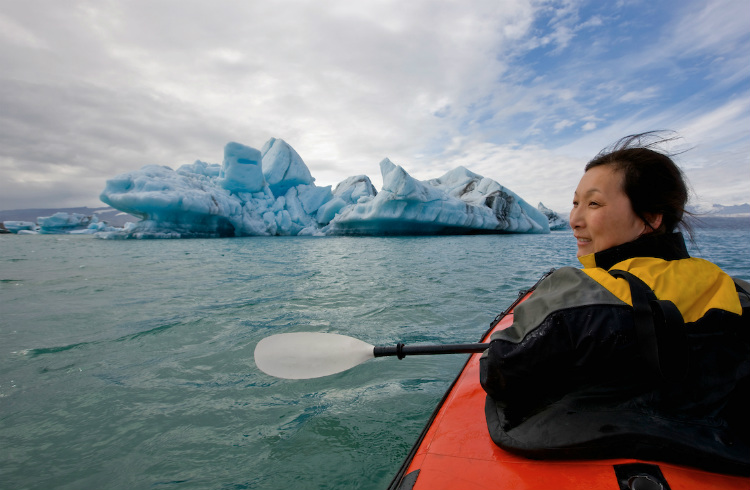
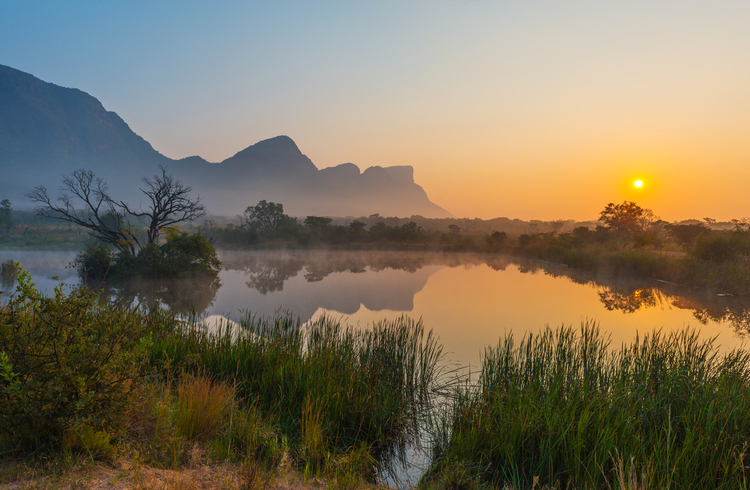
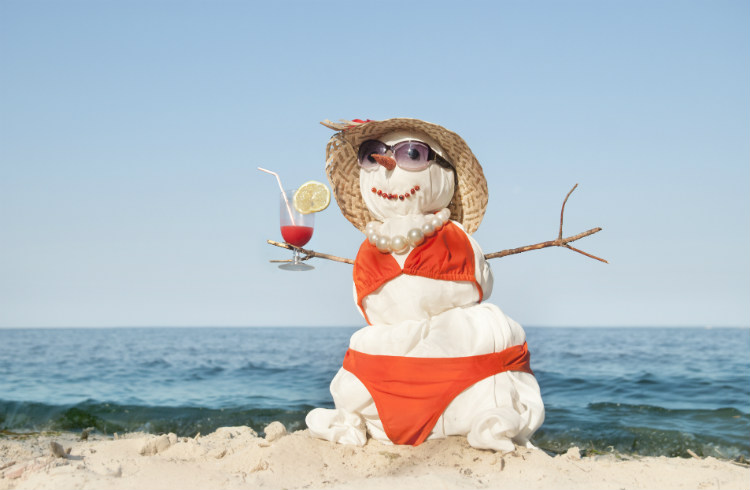
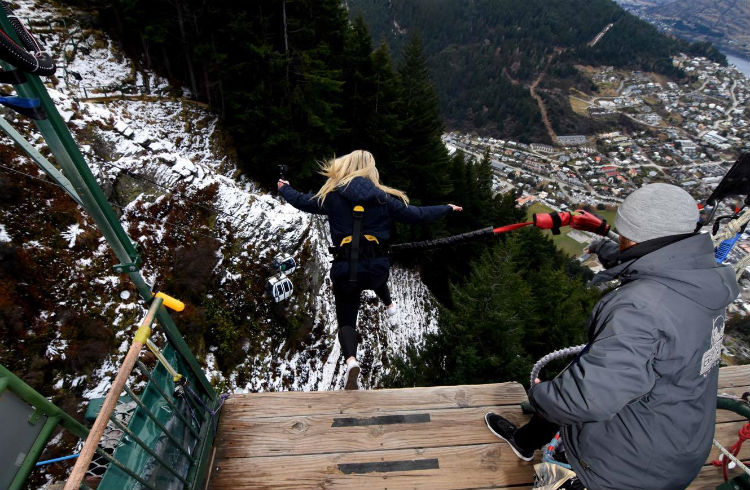
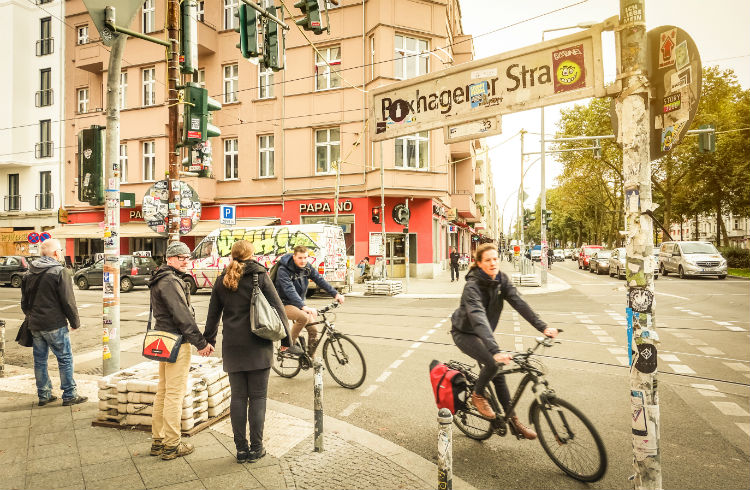
No Comments